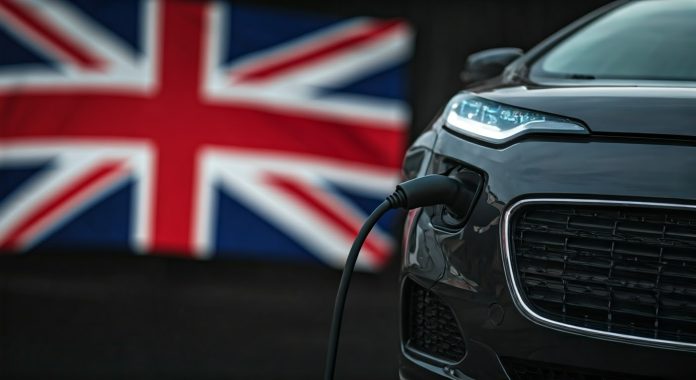The UK automotive sector is calling for urgent government intervention as the Zero Emission Vehicle (ZEV) Mandate faces mounting challenges.
A new report by the Society of Motor Manufacturers and Traders (SMMT) highlights a potential £6bn hit to the industry in 2024 due to weak electric vehicle (EV) demand and rising compliance costs.
This follows recent news that Vauxhall will shut down its van factory in Luton, with Vauxhall’s owner, Stellantis, citing that the decision was made within the context of the ‘stringent’ UK zero-emission vehicle mandate, a move that will put 1,100 jobs at risk.
Without swift action, experts warn the ZEV Mandate could drive dire consequences for jobs, business viability, and the UK’s net-zero goals.
What is the UK’s ZEV Mandate?
The ZEV Mandate, part of the UK’s commitment to decarbonising road transport, sets strict quotas for the percentage of new vehicle sales that must be zero-emission.
Starting in 2024, manufacturers must ensure that EVs comprise 22% of all new car sales, with higher targets in subsequent years. Non-compliance could result in significant fines or the need to purchase credits from competitors.
Under the UK ZEV Mandate, car manufacturers must progressively increase the percentage of zero-emission vehicles they sell each year, aiming for 100% by 2035.
Each ZEV sold earns a certificate, and manufacturers must hold enough certificates annually to match their total vehicle sales.
Additionally, separate CO2 emission targets apply to non-ZEVs. Failure to meet these requirements forces manufacturers to either purchase certificates from others who exceeded their targets or face fines of £15,000 per non-compliant vehicle.
However, industry leaders are now questioning its feasibility in light of economic headwinds and insufficient EV demand.
Weak ZEV demand and rising costs threaten industry stability
The automotive sector has invested heavily in zero-emission technology, offering over 125 electric car models and 30 van models.
Despite advancements in battery technology addressing range anxiety, consumer demand remains sluggish.
High interest rates, elevated raw material costs, and geopolitical instability are deterring buyers, while concerns about inadequate charging infrastructure persist.
When the ZEV Mandate was introduced, it was projected that 457,000 electric cars would be sold in 2024, making up 23.3% of new registrations.
Current forecasts suggest only 363,000 units will be sold, equating to just 18.7% market share. The outlook for electric vans is even grimmer, with expected sales halved to 20,000 units—far below the 10% market share target.
Financial burden on manufacturers
Automakers have been forced to subsidise EV sales through extensive discounts, amounting to an estimated £4bn in 2024.
Despite these incentives, many are unlikely to meet the mandated 22% market share, risking penalties of up to £1.8bn for cars alone. For vans, compliance costs will further strain manufacturers, particularly smaller players.
These financial pressures come as global automakers are already scaling back production due to weak demand.
The cumulative cost of compliance could reach £6bn in 2024, threatening the viability of brands in the UK and deterring international investment in domestic manufacturing.
The risk to jobs and economic growth
The ZEV Mandate’s rigid targets could undermine the UK’s automotive industry, which employs thousands and contributes significantly to the economy.
If manufacturers reduce their presence in the UK or cease operations altogether, the ripple effects could devastate local economies and hinder the country’s ambition to position itself as a leader in green technology.
The SMMT warns that failing to adjust the mandate could lead to production cutbacks, job losses, and a retreat of global investors, putting the sector’s potential £50bn growth over the next decade at risk.
Industry leaders are urging the government to take immediate steps to stimulate EV demand and recalibrate the ZEV Mandate to reflect market realities.
Mike Hawes, SMMT Chief Executive, explained: “We need an urgent review of the automotive market and the regulation intended to drive it. Not because we want to water down any commitments, but because delivery matters more than notional targets.
“The industry is hurting; profitability and viability are in jeopardy and jobs are on the line. When the world changes, so must we. Workable regulation – backed with incentives – will set us up for success and green growth over the next decade.
Government response
In a speech at delivered to SMMT’s annual dinner yesterday, UK Business Secretary Jonathan Reynolds confirmed a consultation will be launched to support manufacturers in the EV transition.
Reynolds confirmed the government is committed to the 2030 targets, but announced they will fast track changes to how the ZEV Mandate is operating.
He said: “I’m going to be frank with you – I don’t believe the policies that we have inherited, and I mean specifically in relation to zero-emission vehicles, are operating today in a way anyone intended them to.”
The road ahead
While the ZEV Mandate represents a critical step in the UK’s climate strategy, its success depends on robust demand and market readiness.
Balancing environmental goals with economic realities is essential to avoid jeopardising the automotive sector’s future. With billions at stake, decisive government action could make the difference between a thriving green economy and an industry in crisis.









